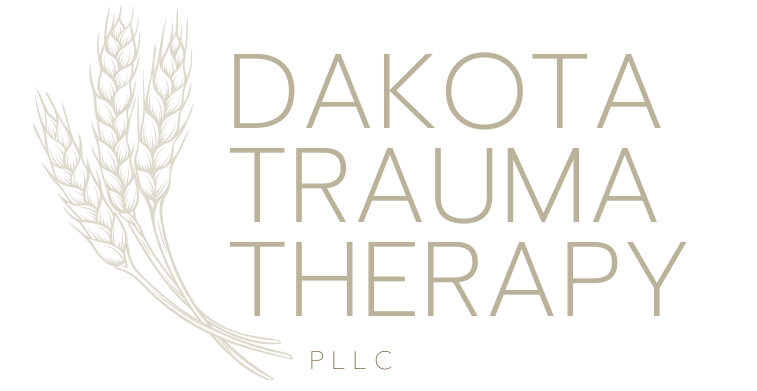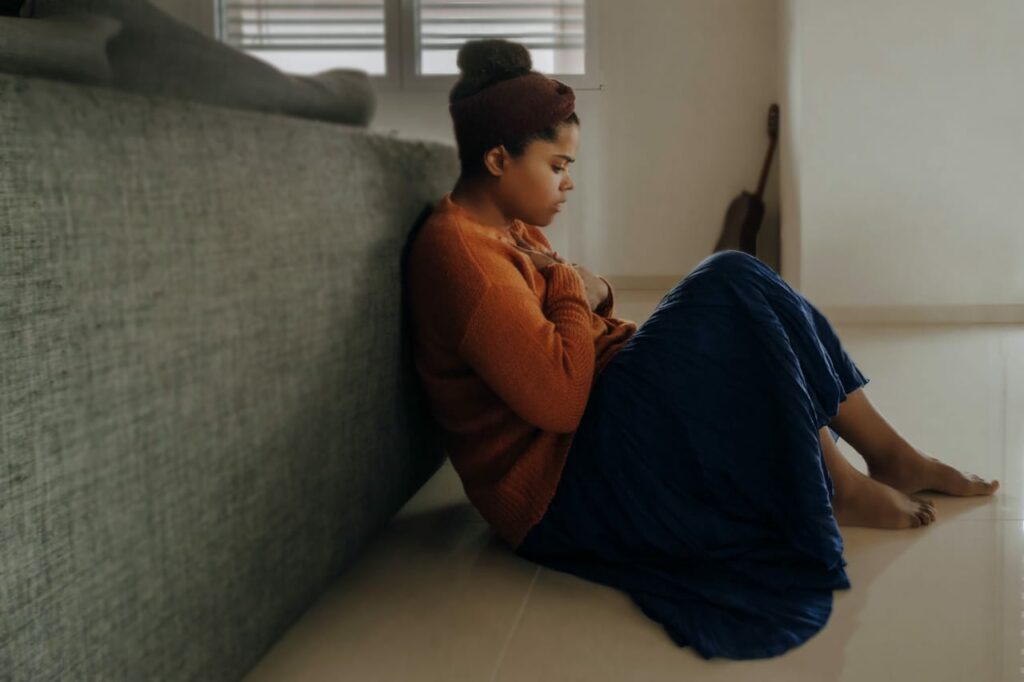Anxiety is a natural stress reaction that might be beneficial in some situations. It can alert us of potential threats and help us strategize and concentrate our efforts. It is an inescapable part of life. Some people, however, have persistent spells of anxiety, which can be harmful. In severe circumstances, anxiety might lead to a disorder.
When concern and distress are both chronic and disturbing, anxiety disorders emerge. You can adequately address anxiety disorders. Regrettably, only 37% of those suffering from them seek therapy. Various solutions are accessible if you wish to avoid contributing to this number.
Anxiety problems can be addressed using coping skills for anxiety. Still, if this does not work, you might seek psychotherapies such as CBT, Exposure therapy, EMDR, etc., or consider medications. The most effective treatment for anxiety is medication alone or in combination with psychotherapy.
A benzodiazepine called Klonopin can be used to treat various anxiety disorders. (1) You probably have many questions and possibly some reservations if your doctor has recommended Klonopin for your anxiety. You must comprehend the medication’s mechanism of action and how it fits into your overall treatment strategy.
Like with any drug, you should be aware of any potential side effects and how your food, other medications, and other factors may alter how it works or cause health issues. This blog will explain how Klonopin reduces anxiety and the various adverse effects you may encounter. It also includes information on warnings and potential medication interactions.
What is Klonopin?
Klonopin is a brand name for a prescription drug of the benzodiazepine family. It is FDA-approved to treat various seizure disorders in adults and children and a panic disorder in adults with or without agoraphobia. (2) Panic disorder is a form of anxiety disorder characterized by recurring panic episodes. (3) Agoraphobia is a dread of being in areas where leaving may be challenging. (4)
Klonopin is also used to treat several different anxiety disorders and is occasionally used as second-line therapy for social anxiety disorder. Clonazepam is the active ingredient in Klonopin, which belongs to the benzodiazepine drug class. Klonopin is available as an oral pill and comes in three different strengths. 0.5 mg, 1 mg, and 2 mg. Klonopin is thought to have an intermediate start of the effect, making it a viable option for treating mental health issues such as anxiety or depression.
As an intermediate-acting benzodiazepine, it can minimize the likelihood of seizure activity for several hours after administration. Klonopin may also be prescribed to individuals who suffer from restlessness, or other involuntary movements, which antipsychotic medicines may cause. (5)

How does Klonopin work for anxiety?
Although the specific mechanism by which Klonopin lessens anxiety is unknown, it is believed to be connected to the stimulation of the inhibitory neurotransmitter gamma-aminobutyric acid (GABA). (6) By attaching to GABA receptors, Klonopin relaxes the brain.
Klonopin increases the action of the neurotransmitter GABA, a substance in the brain that aids with relaxation. This activity causes the central nervous system (CNS) to slow, generating a feeling of calm. (7) Their influence also causes sleepiness, which makes it simpler to unwind.
Klonopin is quite effective at treating panic episodes. (8) The primary treatment should switch to other interventions like antidepressants or psychotherapy. It is beneficial for treating GAD as well. Furthermore, Klonopin can be helpful for social anxiety and phobias if used occasionally and as needed to assist you in getting through challenging circumstances. (9) Sometimes, Klonopin is combined with other drugs to achieve the best outcomes.
Klonopin treats social anxiety disorder in conjunction with antidepressants, such as a selective serotonin reuptake inhibitor. These antidepressants are recommended as first-line therapy for SAD. If a patient with SAD has not reacted satisfactorily to an SSRI alone, Klonopin may be administered along with it. (10)
Klonopin can be taken as needed since it operates rapidly, such as when someone experiences performance anxiety before giving a major presentation or meeting a significant number of new people. Since benzodiazepines like Klonopin carry the danger of addiction, a doctor may only prescribe them for a limited time.
How to take Klonopin?
Both tablets and orally disintegrating tablets of Klonopin are available. You must take the pills with water if you have a prescription. However, if you have a tablet that disintegrates, put it on or beneath your tongue and wait for it to dissolve before ingesting it. It is not required to take it with water.
You can take Klonopin with or without meals, and the recommended dosage ranges from one to three times daily. Because they reduce aberrant electrical activity in the brain, benzodiazepines like Klonopin are used to treat anxiety. While its effects on symptoms of social anxiety are felt right away, other possible advantages might take a little time to come into action. Ensure you follow the prescription’s directions and only modify the dosage after consulting your doctor.
To make the most out of it, take it daily. Use it at similar times every day to help you remember. Do not discontinue this medicine without first discussing it with your doctor. When this medication is abruptly discontinued, several symptoms may worsen.
Dosage of Klonopin for anxiety
Dosage is determined by your health condition, age, and treatment outcomes. The dosage is also weight-based for children. Older persons generally begin with a lower dosage to reduce the chance of adverse effects. Do not raise your dose, take it more frequently, or take it for a more extended period than prescribed.
0.5 mg to 1 mg per day in divided doses is the initial amount your doctor will prescribe for you. They might either increase or reduce as necessary based on your response. The doctor will first prescribe a lower dose of Klonopin for a brief period if you use it to treat social anxiety disorder.
How you feel now that you have started Klonopin should be discussed with your doctor during a follow-up visit. Honesty is required in your responses so they can assess how well it works to alleviate the symptoms. It will also allow you to discuss any adverse effects you may be having with them. Your doctor can decide if your dose has to be changed at this stage.
Serious adverse effects might result from using Klonopin above the authorized dosage. Never take additional Klonopin than your physician has prescribed. Excessive tiredness, disorientation, slowed reflexes, low blood pressure, and other symptoms of an overdose might occur. In such a situation, call your doctor straight away to obtain assistance. Additionally, it is conceivable that you may miss the dosage. Take your medication as soon as you remember to in such a circumstance. However, if it is almost time for the next dose, skip the previous one and continue with the next one.
How long does it take for Klonopin to work for Anxiety?
A soothing effect is usually felt within one to four hours after taking Klonopin. Compared to certain other benzodiazepines, Klonopin’s effects stay longer. Klonopin has a 30 to 40-hour half-life. The time it requires for the system to eliminate half of a dose is known as the half-life of that particular drug. Although Klonopin’s effects start to wear off after a few hours, the pill stays in your system for 6 to 9 days. It is crucial to remember that leftover medicine may still be detected in some urine tests a month after your last dose. Determining your ideal dosage can take you and your doctor a few weeks or days.
How does Klonopin make you Feel?
Klonopin, like other benzodiazepines, reduces activity in the brain, which can cause your body ultimately to slow down. After taking the dosage, you may take more time to process everything around you. You may also experience drowsiness, fatigue, and tiredness.
Klonopin’s physical effects may lead you to move more slowly. Many motor activities, such as driving a car or walking in a straight line, may become more difficult for you. It can also impact your body’s functioning, such as blood circulation and pulse rate.
Some people may find the physical and mental effects of benzodiazepines pleasing. It may also aid anxiety and other mental health issues if used properly. However, misusing or getting high on it can lead to a slew of issues.

Can Klonopin help with Sleep?
The use of Klonopin to treat sleep disorders like insomnia is not authorized. However, the medication may be used for sleep issues off-label. When a medicine is used off-label, it is not for the intended application for which it has received FDA approval.
A frequent side effect of Klonopin, particularly when you initially begin therapy, is sleepiness, so you could feel like it helps with your sleep issues. It is crucial to remember that this is not a long-term or primary solution for sleep problems. Consult your doctor if you want to know more about using Klonopin for sleeping issues, including the recommended dosage.
Is Klonopin addictive?
Klonopin can become addictive; thus, taking the doses exactly as prescribed is critical. Discuss with your physician the drug’s hazards if you have a record of substance abuse issues. Before beginning to consume it, it is essential to understand the risks of inappropriate usage and to watch for signs of abuse, overuse, and dependence.
Can Klonopin be abused?
Klonopin induces a sense of calmness, making it susceptible to abuse and dependence. Even people who take medications prescribed by a doctor may swiftly develop hazardous usage. These favorable sensations frequently motivate individuals to use Klonopin more regularly or in higher doses than prescribed. These desired benefits often begin within an hour of administration and can continue anywhere between 6 and 24 hours.
If taken over a lengthy period, Klonopin can cause tolerance and dependency. Tolerance is a phenomenon that takes place when the body adjusts to the influence of medication and slightly decreases its effects. When this happens, the individual may feel compelled to take more medicine to get the desired results. Dependence occurs due to extended exposure to a drug when the body adjusts to its availability and can no longer respond typically without it. When a person attempts to cease drug usage after acquiring dependency, they experience withdrawal symptoms. Tolerance and dependency are clear indications of abuse. (11)

Is Klonopin a narcotic?
Klonopin is not a narcotic drug. Drugs called narcotics are opioid painkillers that are used to treat extreme pain. Klonopin and other benzodiazepines are not used to manage pain. The Schedule IV prohibited substance clonazepam is a component of the medication Klonopin. Drugs that are deemed to be controlled substances by the government are those that have the potential to be abused or addictive. Narcotics are sometimes mistaken for controlled substances, but both are different.
Interaction of Klonopin with other drugs
Drug interactions might modify how your drugs function or raise the possibility of significant adverse side effects. To be safe, list every product you use and provide it to your physician before receiving the prescription. Without your doctor’s permission, never begin, discontinue, or vary the dosage of any medications.
The following medications may interact negatively with Klonopin and cause side effects. Thus, it is suggested that those on Klonopin avoid them. (12)
When coupled with Klonopin, several prescription medications or classes should be used with extreme caution. These include opioids, anti-anxiety medications, phenothiazines, barbiturates, and nonbarbiturate hypnotics.
Many particular prescription drugs interact with Klonopin. Both the amount of Klonopin in your body and its effectiveness can be affected by these drugs. Ketoconazole, Luvox, Sporanox, and Nefazodone may raise Klonopin’s levels and effects.
The medications Dilantin, Phenobarbital, and Tegretol may reduce the levels and effects of Klonopin. Some individuals with anxiety disorders also use antidepressants. You should know that tricyclic antidepressants (TCAs) and monoamine oxidase inhibitors (MAOIs) might intensify Klonopin’s depressive or sedative effects. (13)
It is also vital to remember that not all drugs that can interact with Klonopin are included in this list. So the wise choice is to consult your doctor or pharmacist before anything. The effects can be enhanced if you take Klonopin with other medicines, marijuana, or alcohol. (14) Inform your physician about all the drugs you consume and other substances, such as vitamins for anxiety, over-the-counter medicines, and herbal treatments.
Side effects of Klonopin
Regardless of the effectiveness of Klonopin in treating anxiety, it can have adverse effects, some of which can be pretty dangerous. The following are some Klonopin adverse effects that are often reported:
- You may become forgetful, weak to concentrate, and easily confused when using Klonopin. It can raise the chance of dementia – persistent memory loss and other cognitive abilities in older individuals.
- It frequently results in exhaustion and drowsiness, which can be hazardous if you need to perform tasks that call for alertness and vigilance, such as operating heavy machinery or driving.
- It may result in balance problems, coordination loss, and delayed reflexes. Klonopin is riskier for elderly patients since their poor balance might increase their risk of falling.
- Your breathing may slow down or stop if you consume more than your doctor has advised, which might put you in a coma or cause death.
- It might result in erectile dysfunction, delayed ejaculation, reduced libido, and variations in sexual function.
The adverse effects of Klonopin frequently depend on the dose. Individuals will feel the results of the medication more strongly the more they consume. Because of this, the drug is initially administered in lesser dosages to test for sensitivity.
Who should not take Klonopin?
If you have a history of allergic reactions to benzodiazepine, narrow-angle glaucoma, or severe liver disease, you should not use Klonopin. Due to the possibility of adverse consequences, several significant medical and psychiatric organizations also warn against taking Klonopin in elderly adults.
Additionally, you should exercise caution and inform your doctor if you have porphyria, renal or liver illness, breathing issues, depression, mental disorders, suicidal thoughts or behaviors, or other conditions.
This drug should only be taken during pregnancy if necessary. A developing child might be harmed. Discuss the advantages and disadvantages of using this medicine during pregnancy with your doctor as soon as you become pregnant, intend to become pregnant, or suspect that you may be pregnant. This medication is excreted in breast milk and may harm a breastfeeding newborn. Before nursing, while taking Klonopin, speak with your doctor.

Take away
You should never ignore anxiety, and medications are the best treatment to deal with it. Your doctor has concluded that prescribing Klonopin for anxiety can be a beneficial element of your treatment strategy. Consult your doctor straight away if you have any questions regarding the drug. Also, tell your doctor about any drugs you are taking and any medical issues you may have to prevent any adverse effects.
There are alternative drugs and treatments you may try if Klonopin does not seem to be alleviating your symptoms or if the adverse effects are too much for you to handle. Before changing the drug, check with your doctor carefully, and do not stop taking it abruptly.

